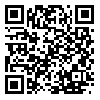Volume 17, Issue 4 (January 2010)
J Birjand Univ Med Sci. 2010, 17(4): 308-315 |
Back to browse issues page
1- PhD Student of Psychology, Faculty of Educational Sciences, Isfahan University, Isfahan, Iran , zohreh_300@yahoo.com
2- Faculty of Educational Sciences, Isfahan University, Isfahan, Iran
2- Faculty of Educational Sciences, Isfahan University, Isfahan, Iran
Abstract: (30553 Views)
Background and Aim: Assertiveness is considered as one of the important factors of success in inter-personal relationships. Weakness in this ability causes to increase stress and results in impaired mental health. On the other hand, previous studies show the effect of assertiveness on educational and career success. The purpose of this study was to investigate the effect of assertiveness training on self-esteem and depression in students of Isfahan University of medical sciences. Materials and Methods: This experimental study, as pre- and post-test with a control group, was conducted in the academic year of 2009-2010. Forty students were selected through randomized cluster sampling into case and control groups (10 female and 10 men for each group). The assertiveness training program was used in case group for 8 sessions. The Ellis Pop esteem test and Beck depression questionnaire were used to evaluate the variables before and after training. The collected data were analyzed by means of SPSS (version 16) using MANCOVA and t tests, at the significant level of P<0.05. Results: The assertiveness training caused a significant increase in the self-esteem level and decrease in the depression rate in case group (P=0.001 for both) but this effect was not seen in control group (P>0/05). Conclusion: Training the assertiveness skills can be used as a method to improve the mental health of students of medical sciences.
Type of Study: Original Article |
Subject:
Health Education
Received: 2011/05/16 | Accepted: 2016/03/10 | ePublished: 2016/03/10
Received: 2011/05/16 | Accepted: 2016/03/10 | ePublished: 2016/03/10
| Rights and permissions | |
 |
This work is licensed under a Creative Commons Attribution-NonCommercial 4.0 International License. |
